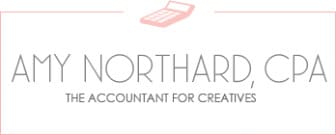A business meeting is always more fun when there’s a latte and scone involved.
But is that business meal tax deductible? And what about deducting those yummy appetizers you purchased for the employee party? In today’s post, I’ll help you suss out which business and entertainment expenses are tax deductible.
Are business meals and entertainment deductions different for tax year 2023?
I want to make sure I start this post by explaining what went down (or up) when it comes to meal and entertainment expense deductions in recent years.
Basically, at the very end of 2020, the Consolidated Appropriations Act of 2021 was signed into law. This act allowed businesses to deduct 100% of business meals if they were purchased from a restaurant (to stimulate the restaurant industry). This change applied to tax years 2021 and 2022.
For tax year 2023 (taxes filed in 2024), the percentage for most business meal deductions has reverted back to the 50% deduction that was put in place by the Tax Cuts and Jobs Act (TCJA) passed in 2017.
And the last notable point about these acts is related to entertainment expenses. The TCJA also eliminated tax deductions for most entertainment, amusement, or recreation expenses. However, as you’ll see in this post, there are some exceptions depending on who is being entertained.
Are business meals tax deductible?
Business Meals That Are 50% Deductible
Generally, if you have a business meeting and there’s food and drinks involved, then the business meal is 50% deductible. I should note this is only if the food is not considered to be lavish or extravagant. You’ll still record the expense at full cost in your bookkeeping, but you’ll only report 50% of the business meal expense on your tax return.
Additionally, if the food is part of an entertainment activity, then the food and drinks must be purchased separately from the entertainment in order to be deductible. However, if the food and drinks are listed as separate line items on a receipt or invoice for the activity, that will work as well. (There’s no tax deduction for the entertainment portion of the bill.)
Some examples where a business meal is 50% deductible:
- You pay for food and drinks at a business meal with a potential business customer.
- You meet with fewer than half of your employees and provide a meal while discussing business. (If you have all of your employees there, then the expense may be 100% deductible!)
- You pay for employee meals at a conference where the meal price isn’t included in the conference price.
- You provide food for an employee meeting or board meeting.
- You provide drinks and snacks to your employees in the office.
- You pay for employee meals during business travel.
- You provide food for an employee working overtime.
Business Meals That Are 100% Deductible
There are also some instances where a business meal is 100% deductible. Generally, these are meals that are provided at company-wide entertainment events or provided as part of an employee’s compensation and listed on their Form W-2.
Some examples where a business meal and entertainment is 100% deductible:
- You provide food, drinks, and entertainment for a company retreat.
- You provide food and drinks at a workshop you’re hosting.
- You provide food, drinks, and entertainment for your business’ holiday party.
- You provide food, drinks, and entertainment to compensate an employee and list that compensation on their Form W-2.
Business Meals That Are 0% Deductible
The general rule here is that if you are providing meals to a client or customer and you aren’t there when the food is enjoyed, then you can’t deduct that bill. In other words, you can’t deduct expenses related to food or entertainment gifts that you give to clients or customers.
Also, if you invite a spouse or friends who don’t work at your business to join you for a business meal with a client or customer, then you can’t deduct your spouse’s or friends’ food bill.
Some examples where a business meal and entertainment is 0% deductible:
- You provide food, drinks, and entertainment for a prospective client but you aren’t present at the event.
- You purchase your spouse’s meal at a business meeting, but your spouse doesn’t work for your company.
- You go to a coffee shop by yourself to focus and get work done.
Can I use the per diem rate instead of the actual cost for business meals while on a business trip?
Sure! If you don’t want to mess with keeping track of the exact amount you spent on meals, you can use the per diem Meals & Incidentals (M&IE) rate for the area where you traveled.
Two things to note about using the per diem method rather than calculating your actual meal expense cost:
- You’ll still only be able to deduct 50% of the per diem rate.
- The rate is lower on the first and last day of travel.
If you want to make sure you’re maximizing your expenses, you can calculate your deduction amount using both methods (per diem and actual cost), and then use whichever method yields the higher deduction amount.
If I’m reimbursed for a meal, can I still deduct it?
Nope. The business that reimbursed you for the meal is who gets to deduct that expense.
How can I make sure my business meals are tax deductible?
You want to make sure that any time you’re taking a business deduction for a meal, then you can clearly explain how that meal was tied to furthering your business (in case the IRS asks during an audit).
It’s a good idea to keep a log where you jot down a few things:
- Who was there?
- Where and when did you eat?
- What was the cost? (Scan, save, or take a picture of the receipt that you keep with your other receipts.)
- What was the business purpose for the occasion? (Give a short description of the goal.)
Food and drinks are an excellent motivator for employees and potential customers alike, so don’t be afraid to break bread in every sense you can! As long as you keep your receipts and keep accurate records, then you’ll have no problem claiming deductions for business meals. Of course, if you have questions about specific meals or expenses, consult an accountant for assistance.
If you found this article helpful, these topics might be your next must-read:

